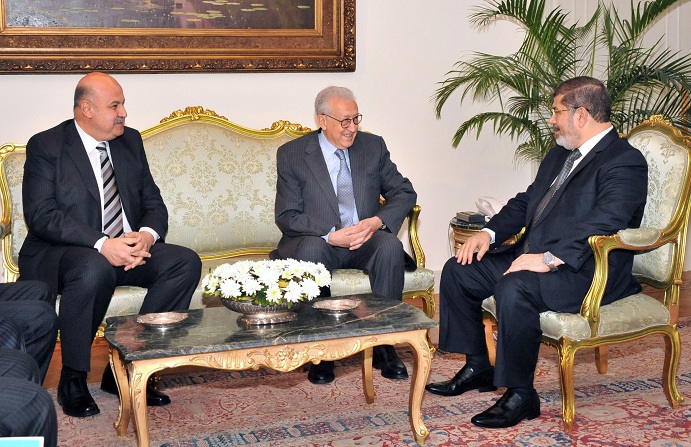
(AFP PHOTO / MOHAMED EL-SHAHED)
The Egyptian Organisation for Human Rights (EOHR) has suggested four legislative amendments on the grounds of “promotion of and respect for the principles of human rights, according to the Egyptian constitution and international conventions”.
The rights group has suggested amendments to the Protest Law, the draft NGO Law as well as suggesting amendments to articles in the Penal Code and a draft of a law governing “freedom and trading of information”.
The amendments were formulated by members of the organisation who are “legal professors and judicial experts”.
The suggestions have been submitted to the head of the Commission on Legislative Reform, a body established by President Abdel Fattah Al-Sisi in June tasked with drafting, amending and revising draft legislations prepared by the presidency, the cabinet or its different ministries in accordance with the constitution.
EOHR suggested a new draft for the Protest Law, which interim President Adly Mansour ratified in November 2013 and was met with domestic and international criticism saying it restricted the right to freedom of assembly and expression.
The group suggested a 13 article draft of the Protest Law, “to confirm, as cited by the constitution, the right to freedom of opinion and expression”. EOHR’s draft also called for the formation of a committee within the Ministry of Interior to “receive notifications for the organisation of meetings and demonstrations and provide the necessary protection for them and maintain security and protect public and private property”.
The draft also called for the cancellation of the penalties currently in place for breaking the law as “it is not a serious criminal offense”. People breaking the law can face between two to five years in jail and a fine between EGP 50,000 and 200,000.
EOHR also suggested a bill governing the practices of NGOs in Egypt aiming to “encourage and stimulate the creation of civil society organizations and support their participation in the development”. The bill also “ensures that this law freedom of establishment NGOs and independence without blocking or disabling by the public authorities, directly or indirectly”.
The current draft of the NGO law has also received heavy criticism. In July 29 NGOs protested against the provisions within the draft saying that it allows for government interference and violates the constitution.
EOHR also proposed amendments to the Penal Code and Criminal Procedure, relating to a bill to combat torture, which includes unlawful detention.
Their fourth and final suggestion is a draft law on “freedom and trading of information”. The group says that the draft aims to ensure stakeholders have access to “existing information”, the “ease of circulation”, “strengthen transparency and accountability of the stakeholders and to encourage openness and participation”.


